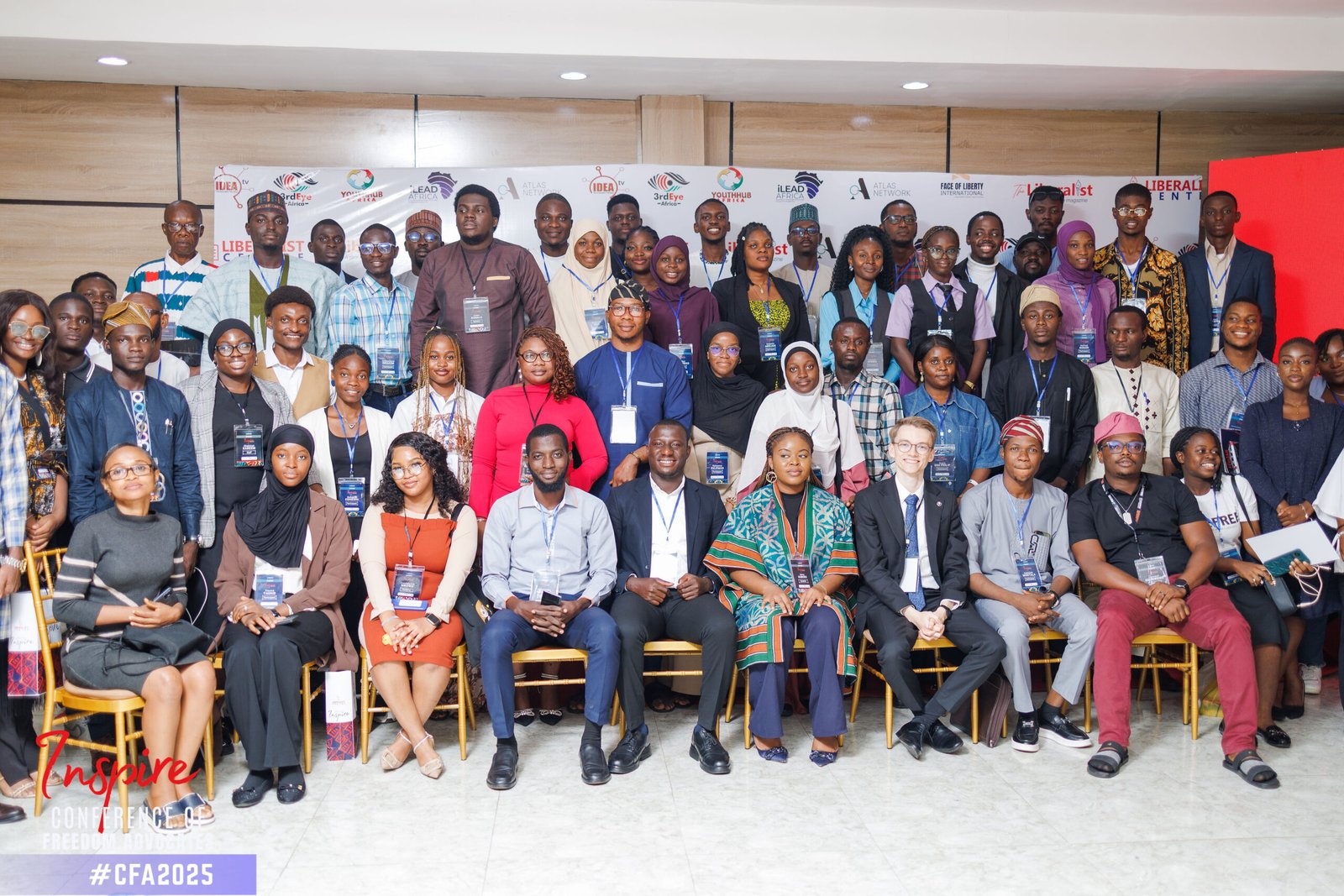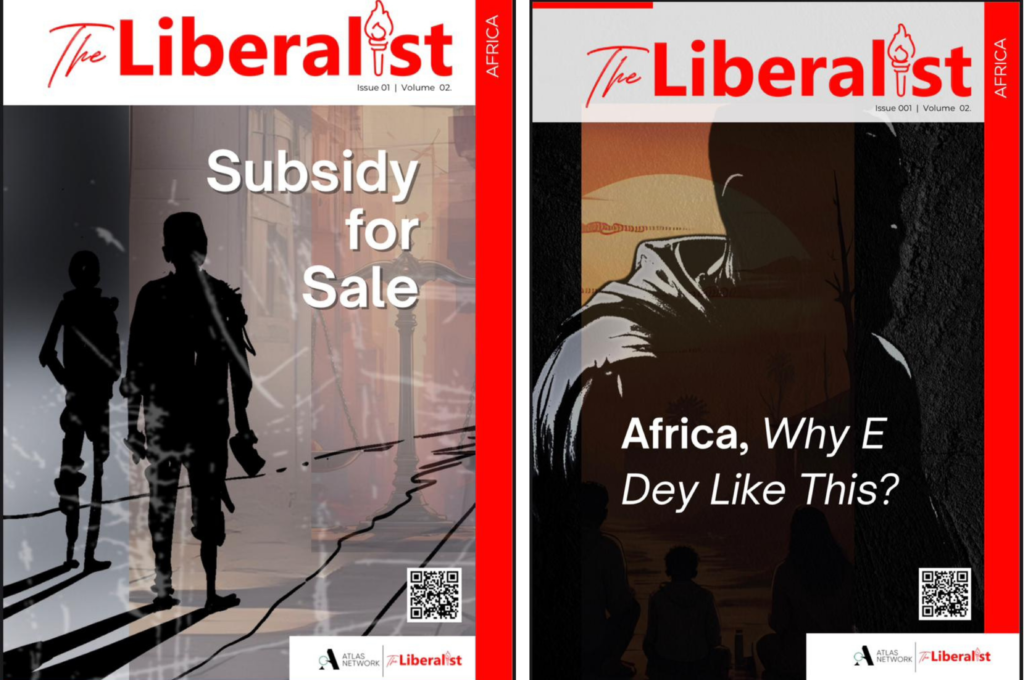The Liberalist, a Nigerian-based pro-freedom publication, has on Saturday, October 25th, launched a magazine titled “The Liberalist Africa,” at the maiden edition of the Conference of Freedom Advocates (CFA 2025), a gathering of activists, journalists and advocates, in Abuja.
The launch began with a brief address by the managing editor, Abdullah Tijani, who opened the floor with a message about the importance of ideas and dialogue in strengthening liberty across African societies. Tijani then invited Ibrahim Adeyemi, HumAngle Investigations Editor and The Liberalist’s editorial consultant, who co-launched the magazine and delivered a compelling presentation titled “The Liberalist Africa: Unlocking the Continent’s Future.”

In his presentation, Adeyemi described The Liberalist Africa magazine as a product of collaboration among journalists and contributors who were supported with grants to write on themes of individual liberty, limited government, and free markets. He explained that the magazine grew out of a conviction that Africa’s underdevelopment cannot be understood without examining the limits placed on freedom.
“This magazine was born out of a question: Is Africa poor because its people are not free?” Adeyemi said. “We go beyond politics and policy headlines to show what freedom or its absence means in the lives of everyday Africans.”
The magazine debuts with two volumes of its first issue, exploring corruption, governance failure, and the real-world effects of policy decisions on ordinary people.
In the lead story of the first volume, titled “Subsidy for Sale,” the writers uncover how a $134 million agricultural subsidy loan was misused through bribery and diversion, depriving small farmers of needed support. Another report, “An Empowerment Scandal in Nasarawa,” reveals how a youth training programme collapsed under corruption, leaving participants more broken and angrier than ever.
The second volume examines local governance and the rule of law, featuring “When Monarch Fought for Free Market,” which recounts how a traditional ruler in a Kwara community disbanded market associations accused of price-fixing during inflation. It also includes “Inside the Governance Crisis in Kenya’s Kisii County,” a story exposing how “ghost projects” and procurement fraud robbed citizens of basic infrastructure.
Adeyemi said The Liberalist Africa aims to help readers link their daily struggles such as bad roads, high prices, and poor services to the deeper structural problems of overregulation and weak accountability.

“Every story in this magazine is driven by one compass: freedom,” he said. “We want to build an informed citizenry that understands liberty not as a slogan, but as a living condition.”
In his Editor’s Note, Tijani reinforced this vision. He stated that the publication’s mission is to make Africans understand freedom as a living force that brings prosperity only when properly understood.
“Our conviction has not wavered,” writes Tijani. “If anything, the urgency of defending liberty in Africa has deepened. This second volume continues our effort to educate and engage a wider community of freedom advocates who believe in individual liberty and free markets.”
He added that the edition asks tough questions about governance: “Why do supposed good policies not translate to prosperity? Why do certain policies persist even when their results are poor?” According to him, the magazine does not claim to provide all the answers but seeks to uncover the causes of Africa’s challenges as a path toward lasting solutions.
“We want Africans to read this magazine not just as commentary,” writes Tijani, “but as something that sharpens understanding of how our present condition unfolded—and what might be possible tomorrow.”
The launch of the magazine was part of the programmes at the CFA 2025 and The Liberalist is the media project of the Liberalist Centre.














